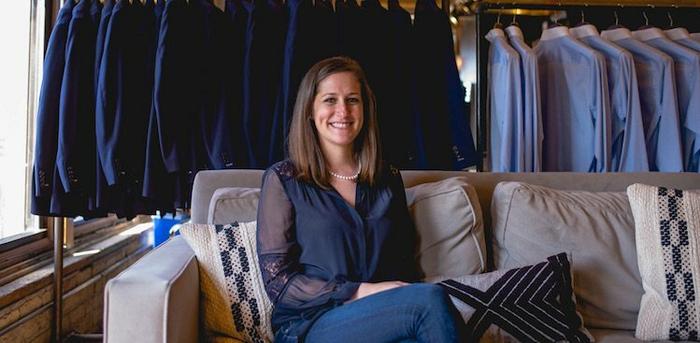
“There comes a time in your career when you realize that you’re ready to take on an almost scary amount of responsibility and autonomy. And for me, that time is now,” says Leah Marcus about her current role as a product manager of sales technology at Trunk Club, a Nordstrom-owned company that delivers in-person and online personal styling services.
But, like most, she has her past to thank for how she got to where she is today. Starting in missile defense, she worked her way into consulting and UX design, where she picked up the frameworks and skills needed to excel in product management.
In between, she faced a period of unemployment—or as she’d like to call it, self-discovery—where she “fostered a few puppies, started taking hip hop dance classes, and got into the habit of regularly reconnecting with former classmates, colleagues, and friends,” and went back to school to get her MBA.
Impressed? So were we, so we sat down and got the whole scoop on her career story.
How Did You Get Started in Missile Defense, and What Exactly Did That Work Require You to Do?
I studied finance and economics in undergrad, but I realized that finance wasn’t the only option for me. So, I expanded my search to include other industries and non-traditional career paths.
Fast forward to a rental car battery dying and arriving three hours late to my interview for a logistics engineering position at a large missile defense contractor. Thinking it was a bust, all of my interview nerves went away. Ultimately, they saw something in me in how I handled the situation.
In that role, I provided support to a missile defense program throughout its entire lifecycle—primarily in the production and sustainment phases. I interacted with many functions, such as engineers, operations, supply chain, and site personnel.
I look back on it now with a little bit of awe that less than four years into my career, the Secretary of Defense was interested in leveraging the strategy that I helped develop.
What Came After That Work?
My transition out of missile defense happened naturally as I left to attend graduate school.
I’m a really visual person, so I sketched out the rest of my career journey below:
How Did You Decide to Go Back to School for Your MBA?
After getting a taste of the innovation process in the missile defense world, I believed that I could be that much more effective if given the opportunity to build and expand upon my skill set.
It felt like the right time in my career to develop a deep understanding of how successful businesses are run and have a safe space to foster my personal and professional growth.
Honestly, the decision to go to Kellogg was really easy for me. It came down to quality education, unique student culture, and the ability to focus on design thinking.
Going back to school was one of the most extraordinary experiences of my life. It was the most interesting, challenging, fun, eye-opening, educational, and stressful two years, and I wouldn’t trade it for the world.
What’s Your Job, in a Nutshell, Now?
As a product manager at Trunk Club, I lead a development team of engineers, designers, and data scientists in building technology tools for our stylists to manage conversations and relationships. On any given day, I might be developing a roadmap, shaping our next big concept, shadowing stylists, or regression testing a new feature.
It’s constant collaboration, storytelling, aligning perspectives, and prioritizing decisions across our business goals, user needs, and technology.
What Do You Like Best About It?
I get to bring all of my past experiences together. Every single day, I get to collaborate with engineers, designers, data scientists, and stakeholders across the entire organization to define, design, and bring new ideas to life.
Is There Any Career Advice You Wish You’d Had During Any Stage of Your Career?
Showing vulnerability, asking for help, and being able to say “I don’t know” are actually signs of strength, not weakness. I faced a serious personal health issue at an early point in my career. At the time, I thought that being strong meant not letting anyone know what I was going through, and not adjusting anyone’s expectations (including my own). I realize now that we’re all just human beings. Asking for help when you need it demonstrates confidence and builds trust, not the other way around.